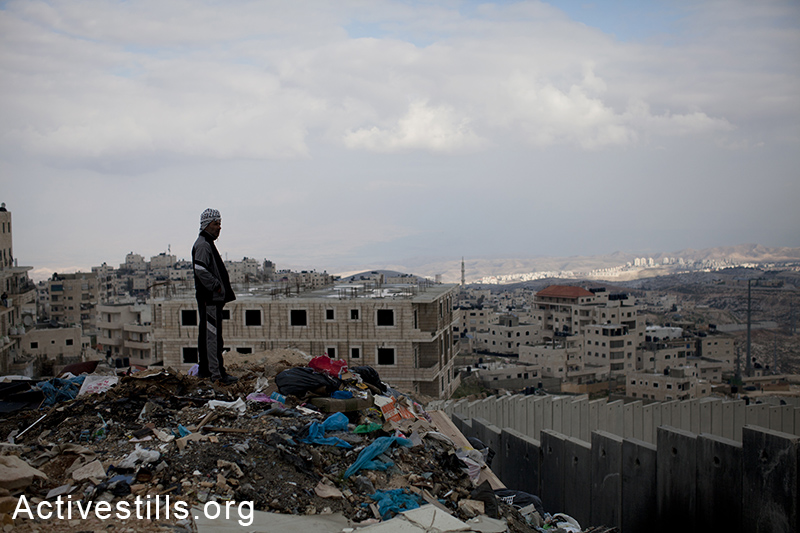Israel refuses to connect four neighborhoods in its self-declared capital to running water.
Tens of thousands of Palestinians in East Jerusalem have been cut off from a regular supply of running water for nearly a year due to to their location beyond Israel’s separation barrier.
Despite their location within the boundaries of Israel’s self-declared capital, the neighborhoods of Ras Shehada, Ras Khamis, Dahyat A’salam and the Shuafat Refugee Camp have been suffering from a severe water crisis since last March, when residents went three weeks without any water supply. They have been forced to buy water bottles at a high cost, and must limit their consumption by using electric pumps and industrial containers.

The High Court of Justice will hold a hearing tomorrow (Monday) to discuss the appeal filed last year by the residents and the Association for Civil Rights in Israel (ACRI).
The Water Authority and the Ministry of Infrastructure have said that they do not intend to connect the houses in these neighborhoods to the water supply, but rather will expand the flow to the central pipelines. This, despite admitting themselves that it will not solve the problem for the roughly 80,000 residents living in these areas.
“Since the construction of the wall and the collapse of local infrastructure, the authorities have attempted time and time again to impose upon us the responsibility of providing residents with basic services in an area that forms part of Jerusalem, and whose residents are Jerusalemites,” says Jamil Sanduka, Chairman of the Ras Khamis Neighborhood Committee. “We have already begun repairing the roads and building schools at our own expense, since the lack of support from the municipality has left us feeling desperate. But we have no way of providing ourselves with water. What do they expect of us? That we haul buckets of water on donkeys?”
The water crisis is just one example of the neglect suffered by Palestinian residents of Jerusalem living east of the separation barrier, who are not provided with basic services such as waste collection and ambulance services.
Even though Israel is responsible for surrounding these areas with the wall, its government has not taken responsibility for the welfare of its residents, who are part of the “eternal undivided capital” of Israel.
Related:
PHOTOS: 13 days without water in East Jerusalem
East Jerusalem Palestinians demand running water be restored


